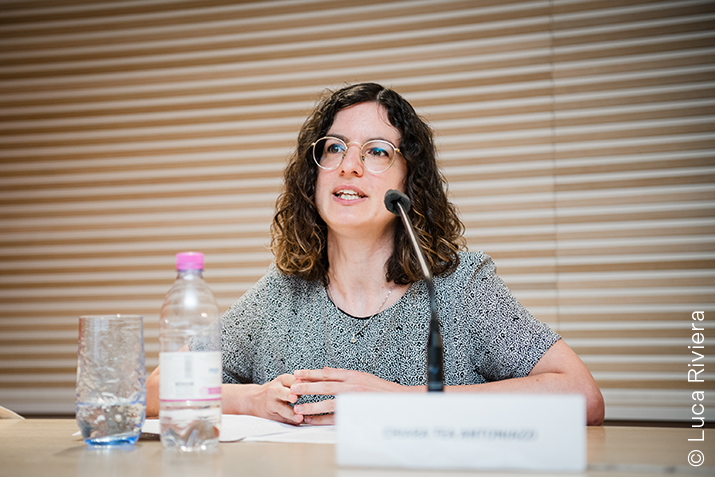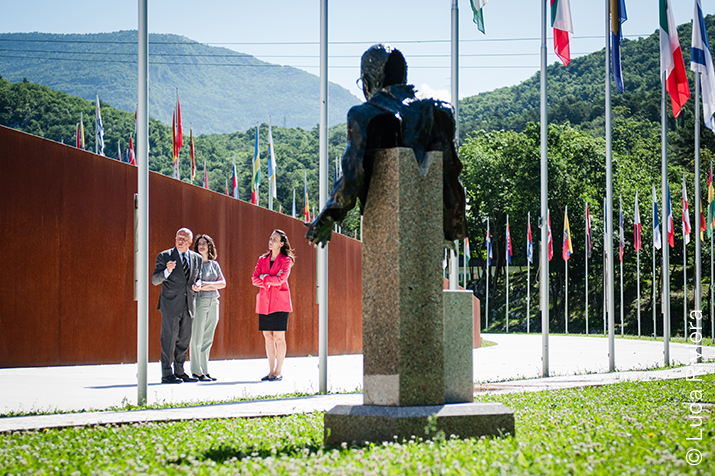SEMINAR AT THE BELL
ANTI-POVERTY INSTRUMENTS
First of all, there is a need to clarify the legal nature of the Sustainable Development Goals. While it is true that the Goals are not in themselves formally binding on States, even though the States have collectively endorsed them in the UN General Assembly, it is also true that the realisation of the Goals is closely linked to the implementation of binding norms for States. For example, the eradication of poverty and many other goals depend on the States meeting their climate change obligations. Even more immediately relevant to the goal of poverty eradication, then, are the international human rights obligations entered into by the States. And in fact, poverty jeopardises and risks violating most of the human rights that Italy and many other countries have pledged to guarantee: from the right to life itself (to be understood as the right not only to survival, but also to a dignified life) to the right to health, housing, food, education, and so on.
This opens up the complex issue of what it means for the State to respect and realise human rights - the right to housing, for example. Several international bodies that have commented on the issue have made it clear that the State is obliged to respect a minimum, essential content of the right: for example, by avoiding forced evictions that oblige people to live on the street; ensuring that housing is connected to essential services; facilitating access to housing for people with low incomes; and implementing special measures for particularly vulnerable people. Moreover, the State is bound over time to fully realise the right to housing: which implies, among other things, that the State cannot retreat, but only advance in guaranteeing this right; and that it cannot realise this right in a discriminatory manner, for instance by arbitrarily excluding persons of foreign origin. This applies to all social and cultural economic rights (such as the right to food, health, education, work, social security, etc.) - rights whose respect is necessary for a dignified life and is closely linked to the eradication of poverty. Moreover, poverty also hinders the full realisation of so-called civil and political rights, such as full participation in the public and political life of a country and freedom of expression.
Now, it is clear that in order to fully realise these rights and end poverty, complex policies and interventions are needed at all territorial (local, regional, national, as well as international) and institutional levels (through laws, administrative acts, judgments); massive financial resources are needed; the private sector needs to be involved, e.g. in order to improve employment and access to housing; judges, law enforcement agencies, doctors and any other relevant authorities and professions need to be trained so that they are sensitive to the needs of people in poverty; people in poverty need to be informed about the rights they have and the services they can access. What is needed, in short, is widespread action aimed at eradicating poverty through an approach based on respect for human rights.
And this is where national human rights institutions come in. These are, in short, independent public bodies in charge of promoting and protecting human rights within their respective countries. These rights generally include both rights protected by the national constitution and rights that the State has undertaken to guarantee through the ratification of international treaties. In this sense, although the institutions in question are national bodies, they are characterised by an important supranational dimension; so much so that there are international standards, the 'Paris Principles', which govern their characteristics and functions.
National human rights institutions are, therefore, state bodies; yet, at the same time, they are independent of the rest of the state apparatus (parliament, government and any other public authority), whose work they are called upon to supervise. In our country, if it existed, the national human rights institution would probably take the form of an independent administrative authority, like the national guarantor for the rights of persons deprived of their liberty or the guarantor for children and adolescents. To date, however, in Italy there is no institution with general competence, which oversees respect for the human rights of all and sundry, and not only of specific categories of people (although certainly deserving of enhanced protection as they are particularly vulnerable). This is a serious shortcoming, for the fight against poverty and beyond. Also because at the end of 2023, 5.7 million individuals in our country (9.8% of the population) were in absolute poverty, i.e. unable to access goods and services considered essential. When we talk about poverty, therefore, we are not just talking about distant countries.
National human rights institutions, where they exist, have, among other things, the task of advising the government, parliament and any other competent authority on human rights issues, for instance by giving their opinion on draft legislation or more generally by issuing recommendations. They also promote the ratification of international treaties and monitor their compliance at national level, send reports on the human rights situation in their country to international monitoring bodies and perform other such activities. It is therefore clear why the creation of a national human rights institution in Italy would be important to contribute to the gradual eradication of poverty.
Chiara Tea Antoniazzi









